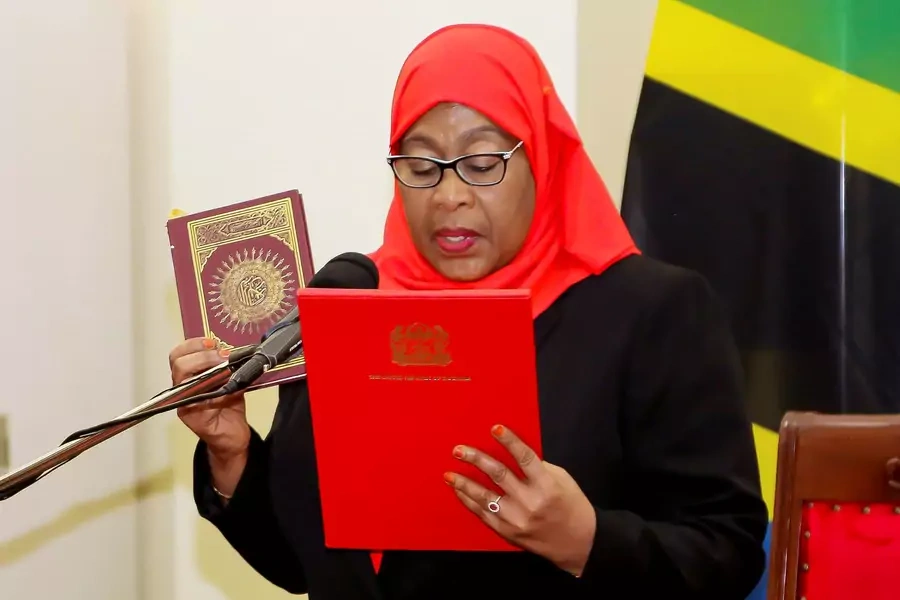Women This Week: First Woman President of Tanzania

This week's post was authored by Elena Ortiz, intern with the Women and Foreign Policy program.
First Woman President Ascends in Tanzania
Following the sudden death of now-former president John Magufuli, Samia Suluhu Hassan was sworn in as Tanzania’s first female president and the only current female national leader on the continent of Africa. U.S. Vice President Kamala Harris publicly congratulated Hassan on her historic inauguration. Hassan previously served as vice president to Magufuli, who controversially denied the severity of the COVID-19 pandemic in the East African country and made no effort to obtain vaccines or promote social distancing measures. Hassan will complete Magufuli’s second five-year term that began in October 2020, though her policy priorities and approach to managing the COVID-19 crisis remain unclear.
More on:
Turkey Withdraws from Istanbul Convention on Violence Against Women
Turkish President Erdogan announced the country’s withdrawal from the Council of Europe’s Istanbul Convention, an international agreement to prevent and combat violence against women. Of the forty-four signatories of the original convention in 2011, Turkey was the first to sign on. International leaders, including U.S. President Joe Biden and Council of Europe Secretary General Marija Pejčinovic Buric, strongly condemned the withdrawal as reversing progress on gender equality. Erdogan’s announcement reflects backsliding in women’s rights, including the detainment of peaceful protestors on International Women’s Day.
Murder of Britain’s Sarah Everard Sparks Protests for Women’s Safety
The abduction and murder of UK resident Sarah Everard by a British police officer has ignited widespread outcry as women from the United Kingdom and other countries took to the streets to protest harassment, violence, and lack of safety for women in large cities. In the UK, three-quarters of women have endured street harassment, including two-thirds of women and girls between the ages of fourteen and twenty-one. Following Everard’s murder, British police received orders to instruct women to stay home for their safety, triggering increased outcry from women who demanded that they should be able to walk in public without fear of violence.
More on:
 Online Store
Online Store